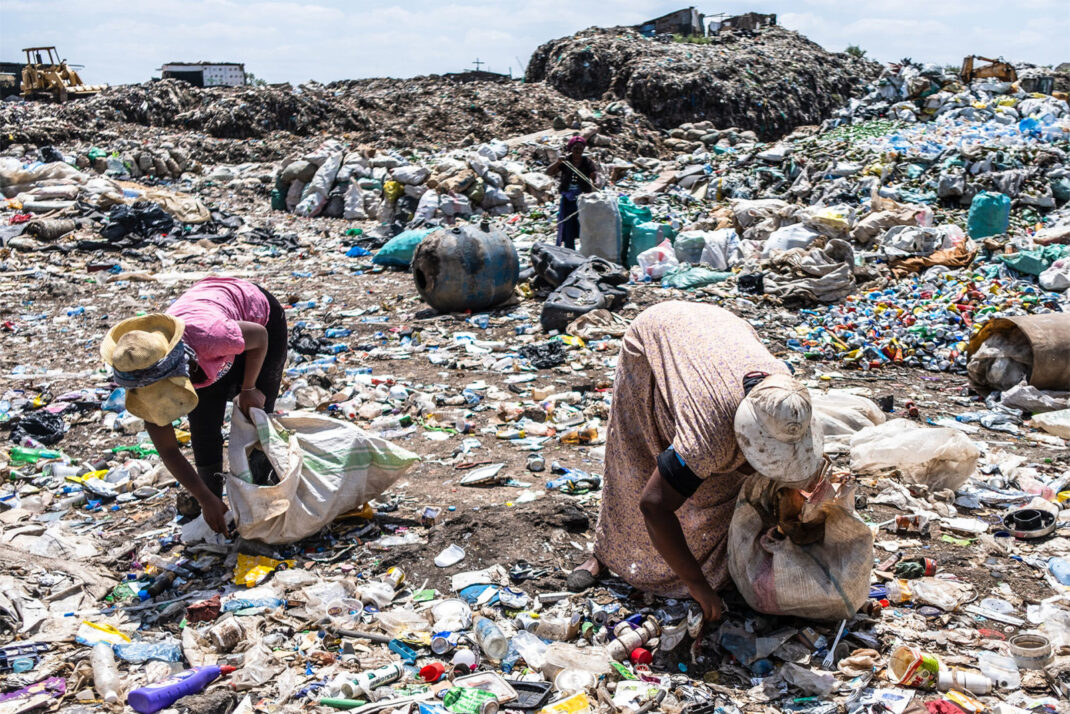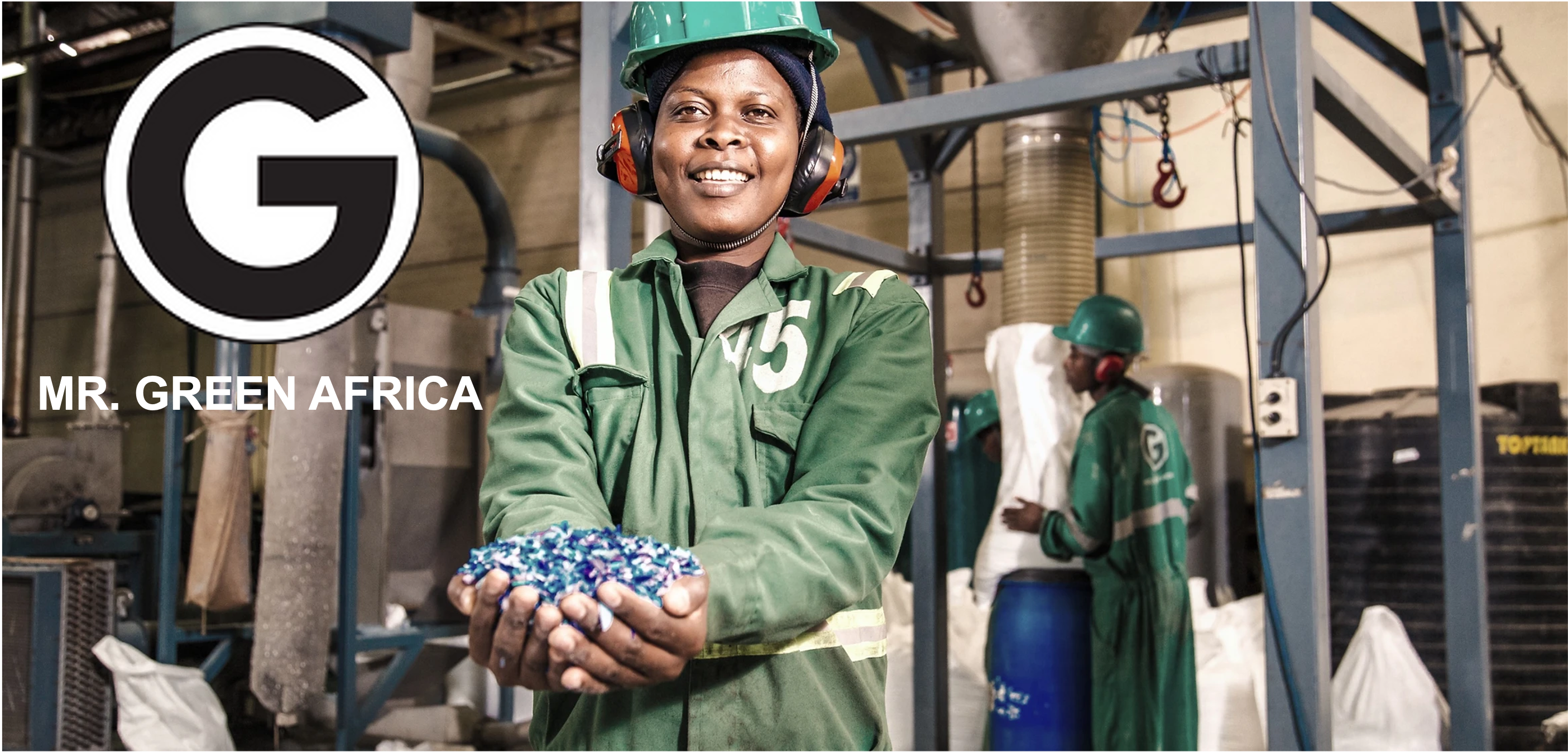According to most recent estimations, over 300 million tons of petroleum-based plastics are produced annually. These plastics are used in a wide range of products, from packaging materials to electronics and vehicles. However, a significant amount of plastic waste ends up in landfills, where it can take centuries to break down, leading to pollution of the surrounding soil and waterways, as well as harm to wildlife that may ingest or become entangled in the plastic. A large amount of plastic waste also ends up in the ocean, where it harms marine life and disrupts ecosystems. It is estimated that by 2050, there could be more plastic in the ocean than fish by weight.
Sure, efforts are being made to reduce plastic waste, such as recycling programs and the development of biodegradable plastics. However, these solutions are not perfect and face challenges including contamination and lack of infrastructure for collection and processing.
For the curious, there are a couple of ways you can handle plastic from a biochemical standpoint:
- Traditional Method, which involves melting plastics and processing them into new plastic products via injection molding.
- Advanced Method, which involves breaking down plastic material through either pyrolysis, chemical recycling, or gasification. Oftentimes these processes can take plastic waste and transform them into crude oil, or even into gas to create energy.
Both traditional and advanced recycling have their benefits. However, applying any of the two methods depends on the facilities available. The end product a recycler intends to produce also determines the recycling method.
In an ideal world, as the amount of plastics continues to grow, our world is reaching for a dream of a circular economy, which keeps materials, products, and services in circulation for as long as possible. This is an especially important concept in large, widespread urban areas where the amount of waste produced and the number of facilities to process them can be disproportionate.
In Nairobi, Kenya, a former student of mine, Keiran Smith, is addressing this very issue. His company Mr. Green Africa recycles over 6,000 tons of waste per year and employs local trash collectors to achieve tangible social and environmental impact. We sat down with Keiran to discuss his work and his vision for how businesses like his can scale in order to tackle the growing problem of plastic waste.
  |
| All the things you do for your students who start a business… Gert “modeling” Mr. Green recycling bags at BlueLion Incubator in Zurich, Switzerland, a few years ago. |
Tell us a little about your business. What was your biggest inspiration for starting this kind of work?
At Mr. Green Africa, we collect and buy back plastics from communities, sort and convert them to produce high-quality post-consumer recycled plastic thus closing the loop locally and ensuring plastic packaging waste gets a circular lifecycle.

We make the informal waste sector part of our solution and partner with FMCG companies to position social and environmental impact at the core of a financially sustainable and scalable business, while still creating decent and sustainable jobs in and for the informal market. We are excited to be the first B-Corp recycling & waste management company in Africa.
Our motivation for starting this company stemmed from a deep-seated passion for creating an inclusive and sustainable business model that addressed the urgent need to reduce plastic pollution in Africa. We recognized the unique potential for African nations to lead the way in sustainable and responsible recycling practices, and we were committed to leveraging the latest technologies and innovative techniques to create a circular economy that transformed plastic waste into valuable resources.
By working closely with marginalized waste-picking communities and leveraging the growing demand for recycled plastic products, we aimed to build a functional supply chain that supported both economic viability and social and environmental impact. Our vision is to become the leading supplier of high-quality, fairly-sourced Post Consumer Recyclate in the global south, positioning social and environmental responsibility at the core of our business.
What have you seen as the most effective way to recycle and get closer to a circular economy?
Having an established waste management infrastructure that has the capability and capacity to recycle all the various types of plastics, and reverse logistics supply chains that enable the diversion and “extraction” of this valuable resource in an inclusive & viable way.
This way, there will be a more circular and inclusive system that has sustainable social and environmental benefits.
Tell me a little more about your deal with Unilever to buy re- & upcycled materials to make new bottles. What does that process look like?
Our deal with Unilever supports our business growth through the research and development process and launches of the first packaging in East Africa made out of 100% post-consumer recyclate that was locally recycled and fairly sourced from the marginalized waste-picking community.
Plastic waste is collected from the environment and brought to our facility for washing and recycling. This is then sold to a Unilever-approved packaging producer who then transforms our end product into canisters for products we see in supermarkets today as Sunlight, Vim, and Domestos.
How does your environmental work intersect with the greater African community?
Mr. Green Africa changes the perception of waste. As a business, we are introducing fair business practices to an informal industry where exploitation is common.

By offering consistent prices, treating our suppliers with respect, and dignifying their work we are positively influencing how they view waste picking as a source of income. By training them on productivity, health, and safety, we are helping them to be more productive, which means improved income which means better lives. If the life of one waste picker is transformed, the community around them is influenced and sees a reason to participate and to treat waste picking and waste pickers better. This causes a ripple effect not just in the communities around us and eventually to the entire continent.
Do you think the dream of a circular economy can exist in places like Kenya?
Yes, most definitely. As a matter of fact, we believe that countries like Kenya can leapfrog and hence transition faster into a circular economy that European or US states can. One of the main advantages of a circular economy is that it can help create jobs and stimulate economic growth. This is especially important in countries like Kenya where within itself, economic development has high potential.
How do you see the solutions you’re building in Nairobi scaling up in other countries with large urban centers like Nairobi?
We believe sustainable growth and the waste challenge are intertwined issues, and in the importance of implementing sustainable and inclusive strategies which cannot be decoupled from economic strategies.

First, is leveraging existing efficient recycling technologies and applying them to the African context, while innovating locally and contextually at the same time. The second consideration involves building supply chains that provide value rather than extracting value from the key collection stakeholders (i.e., consumers and members of the BOP community) that way we can scale.
What advice would you give to other environmental change-makers looking to start businesses to address these larger sustainability needs?
I would advise them to:
1. Identify the problem: Do some research to identify the specific environmental problem you want to address through your business. This will help you define your mission and target market.
2. Find a triple-bottom-line-business model: Consider how your business can operate sustainably, socially, financially, and environmentally. This may include using renewable resources, minimizing waste, and maximizing efficiency.
3. Build a strong team: A strong team is essential for any successful business. Look for individuals who share your passion for sustainability and have the skills and experience needed to help you achieve your goals.
4. Stay flexible and adaptable: The sustainability landscape is constantly evolving, so it’s important to stay flexible and adaptable. Be open to new ideas and feedback, and be willing to pivot your business model as needed to stay aligned with your mission and goals.


Pingback: Digigram Newsletter of March 2023! – Gert Christen.org
One solution that I would like to highlight is the use of recycled plastics. Companies like Raw tech trade are doing their part by providing a marketplace for buying and selling recycled plastic materials. By supporting this marketplace, we can help promote the use of recycled plastics and reduce our reliance on virgin plastics.
Pingback: Climate Change As A Business Opportunity – Gert Christen.org